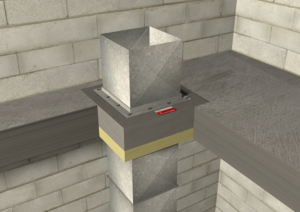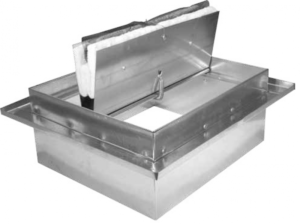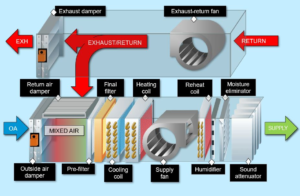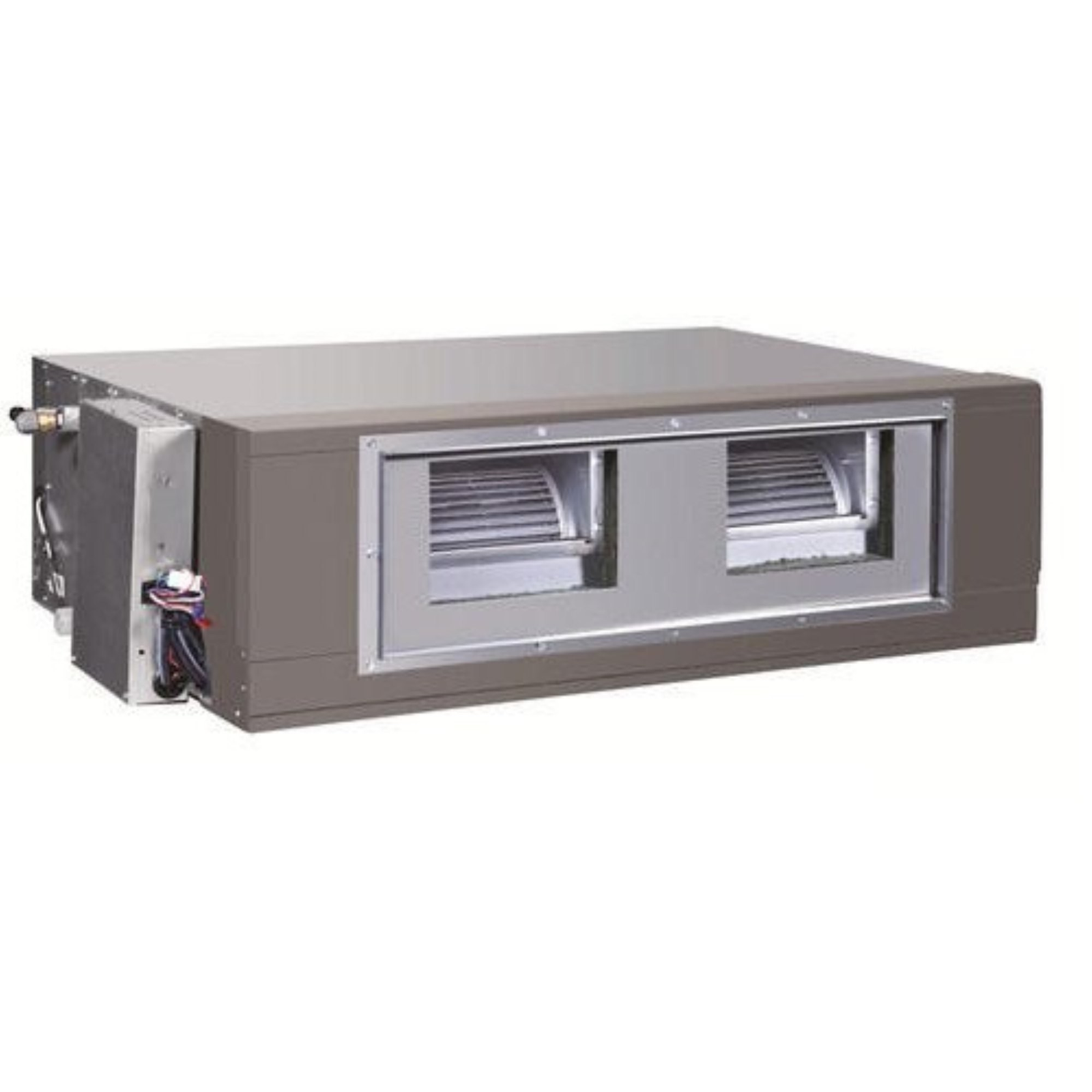Where is fire damper required? Fire dampers are critical safety components within HVAC systems, playing a vital role in fire containment. Here’s a detailed breakdown of where fire dampers are required, along with illustrations for better understanding:
Locations Requiring Fire Dampers:
Wall and Floor Openings:
Fire dampers are mandatory in all walls and floors penetrated by air ducts. This includes penetrations for supply, return, and exhaust air ducts.
Vertical Shafts:
These dampers require in all vertical shafts containing air ducts, such as elevator shafts, stairwells, and laundry chutes. These dampers help prevent the spread of fire and smoke vertically through the building.
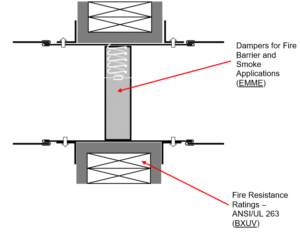
Ceiling Plenums:
In buildings with concealed spaces above suspended ceilings (plenums), fire dampers are mandated in all duct penetrations of the fire barrier separating the plenum from the floor above. This prevents fire from traveling through the plenum and into other areas.
Air Handling Units:
Fire dampers often install within air handling units (AHUs) on the discharge side of the supply fan, can help restrict the spread of fire from within the AHU itself into the ductwork.
Local Building Codes:
It’s vital to consult your local building codes for specific requirements regarding fire damper placement. These codes may have additional stipulations beyond the general guidelines mentioned above. They hold legal weight and ensure adherence to fire safety standards.
Specialised Areas:
Certain high-risk spaces within a building might have stricter fire safety regulations. For instance, fire dampers might be mandatory in ductwork serving areas like kitchens, laboratories, and welding areas where fire risks are higher.
The Importance of Fire Dampers:
They play a critical role in life safety during a fire event by:
- Protecting occupants from smoke inhalation and toxic fumes.
- Minimizing the spread of fire to other parts of the building.
- Allowing for safe evacuation by keeping escape routes clear of smoke.
When properly installed and maintained, fire dampers can significantly improve fire safety in residential and commercial buildings. In essence, they are passive fire protection devices that buy valuable time in the event of a fire.
Looking to install a commercial HVAC System or Duct work in your Business Area?
Contact Vipul Ac to learn about our HVAC Service
Call +91 9825636606 Today.

